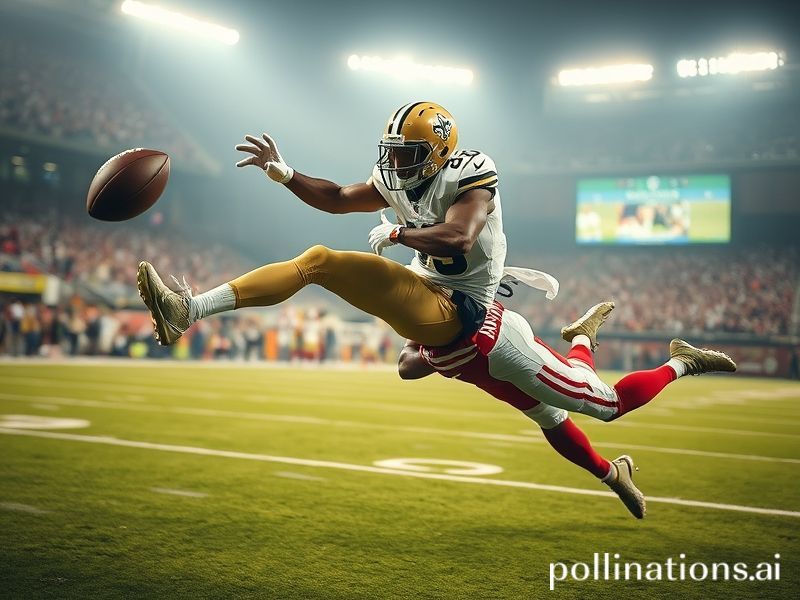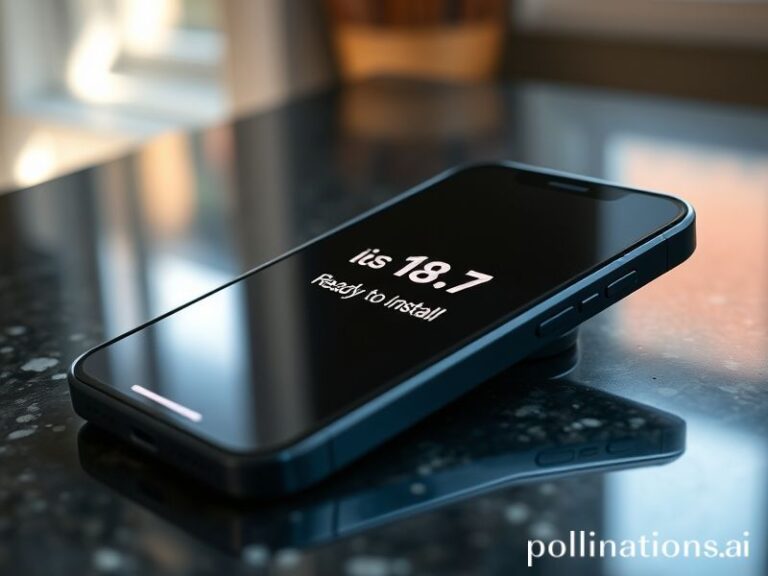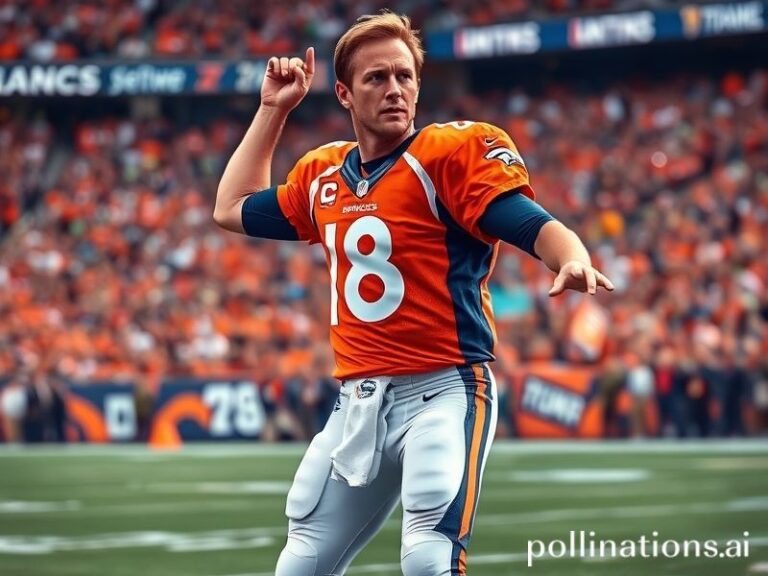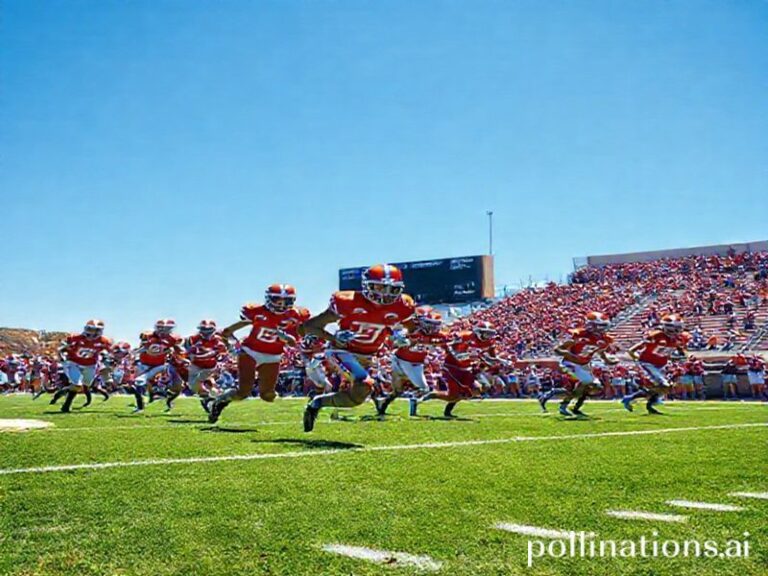Saints vs 49ers: A Global Metaphor Played in Helmets and Hedge-Fund Adverts
When the Saints and 49ers squared off in soggy Santa Clara last Sunday, the official broadcast listed it as “NFL Week 12, Prime Time.” Elsewhere on the planet it registered as something closer to geopolitical kabuki: two American provinces squabbling over a leather oblong while the rest of us wondered whether the lights would stay on through Christmas. From the vantage point of a sports bar in Lagos—where the generator coughs like a chain-smoking oracle—the game looked less like sport and more like an arms-length metaphor for late-stage capitalism: helmets sponsored by crypto exchanges, jerseys flogging online betting parlors, and a halftime show that could have doubled as an ad for the U.S. national debt clock.
Yet viewers tuned in from Seoul to São Paulo, because the Saints-49ers collision offered something rarer than a Tom Brady ring: a tidy morality play with global resonance. On one sideline, New Orleans—America’s favorite disaster résumé, still rebuilding after every meteorological and municipal calamity since 1718—represented the triumph of hope over actuarial tables. On the other, San Francisco, birthplace of the microchip and the macro-ego, embodied the techno-utopian optimism that now sells us driverless buses that still run over dogs. If you squinted, you could almost see the UN General Assembly in pads.
The game’s stakes, generously described as “wildcard implications,” were largely lost on the 1.5 million Afghans who spent the same three hours queueing for UN flour rations. But the international feed did carry a chyron noting that both teams’ combined salary cap could settle Greece’s entire sovereign debt—twice. Somewhere in Brussels, an EU finance minister glanced at the screen, sighed, and returned to drafting another stern letter about fiscal responsibility.
From a purely tactical standpoint, the contest delivered exactly what neutral observers expected: sporadic brilliance wrapped in bureaucratic tedium. The Saints’ defense, apparently inspired by French rail strikes, showed up only intermittently. Meanwhile, the 49ers offense, led by a quarterback whose surname sounds like a German tax regulation (Purdy), marched downfield with the relentless cheer of a Silicon Valley TED Talk. By the fourth quarter, the score resembled a mismatched currency conversion: 49ers 27, Saints 14, or roughly 1.8 billion Zambian kwacha—enough to vaccinate a mid-sized African nation, though not quite enough to buy a two-bedroom condo within commuting distance of Levi’s Stadium.
What the box score failed to capture was the ambient absurdity. Every replay review felt like a WTO arbitration. Each injury timeout allowed Amazon Prime to remind viewers in 240 countries that their packages were running late because the same algorithm now calling pass interference also schedules freight ships. At one point the referee announced a “roughing the passer” penalty with the solemnity of a Hague tribunal verdict; in the stands, a fan wearing cheese-based headgear wept softly into his NFT souvenir cup.
Post-game, the winning coach praised “resilience,” the losing coach praised “effort,” and both praised the troops—because nothing says international diplomacy like invoking the U.S. military after a football game. Over in Kyiv, a civilian watching on a cracked smartphone wondered whether “defensive secondary” referred to the Saints’ backfield or NATO’s. In Beijing, state media clipped the highlights into a 12-second reel titled “Decadent West Celebrates Trivial War Game,” right before cutting to footage of their latest hypersonic missile test—essentially the same sport, minus the salary cap.
And so the global caravan rolls on. The Saints fly home to a city that may or may not exist by 2100, depending on oceanic mood swings. The 49ers retreat to a region where billionaires build bunkers against the apocalypse they helped IPO. Fans everywhere bookmark next week’s matchup, because even in a world tilting toward heat death, there remains something comfortingly finite about four quarters and a scoreboard.
In the end, the broader significance is brutally simple: humanity will wager on anything—crypto, carbon credits, cat videos—so long as there’s a winner, a loser, and a broadcast deal. The Saints lost, the 49ers won, and the rest of us, per usual, await the next kickoff with the resigned optimism of a UN climate summit. Same time next week, planet Earth. Bring a raincoat and a moral compass; neither tends to survive overtime.







